I recently travelled to Haiti to document the installation of Gavi-supported solar-powered fridges that will help Haiti keep vaccines cool, and meet the vaccine champions working to increase immunisation coverage in the most remote areas of the country. During the trip, I shot a series of portraits of the amazing people I met there. These are some of my favourites
Solar power and vaccine champions in Haiti
- 19 August 2017
- 4 min read
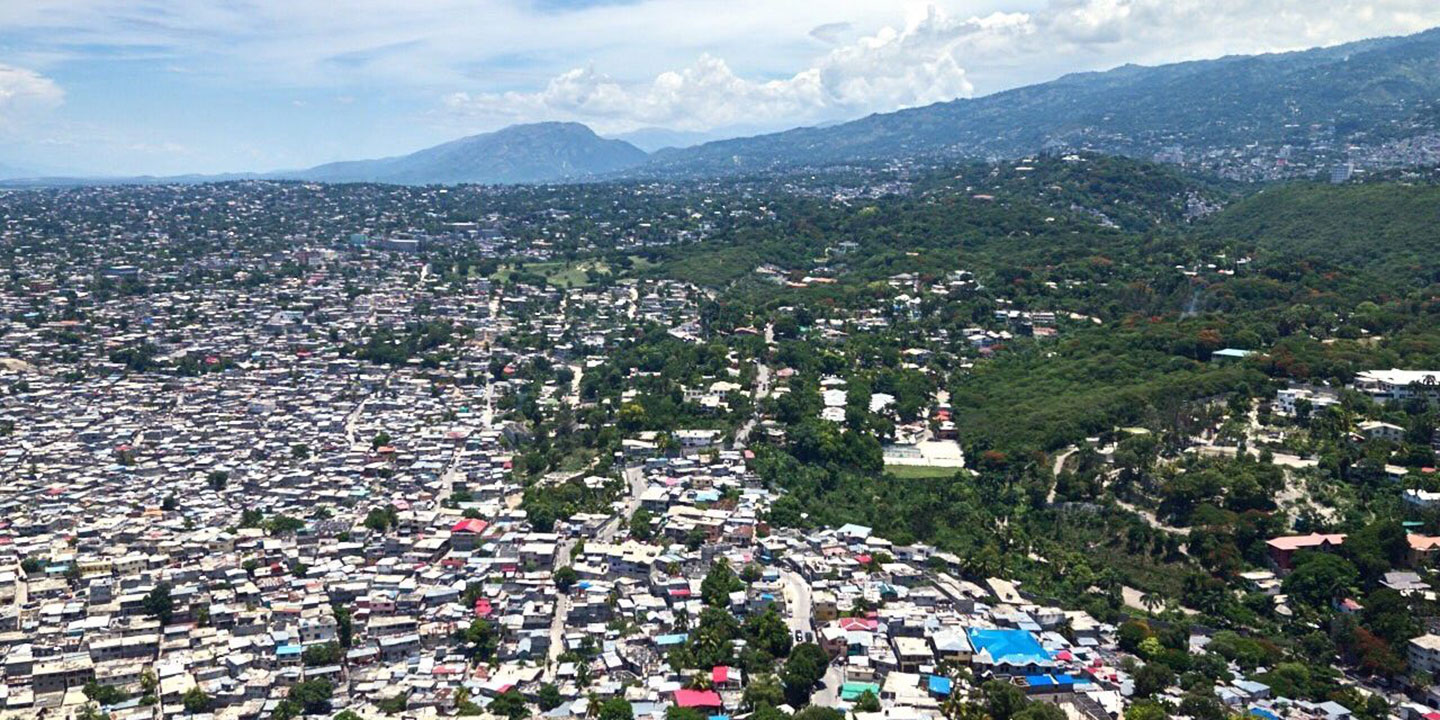
Since June 2017, Dr Paule-Andrée Byron Louis heads Haiti’s Expanded Programme on Immunization. She is a passionate public health expert and brings a wealth of experience through her work in the Health and Population Ministry. She explained to me how Haiti – with a new government and strong support from its partners – needs to “rebuild the foundation of its immunisation programme and reorganise teams to ensure that every child gets the vaccines that they need.”
Dr Paule-Andrée Byron Louis, head of Haiti’s vaccine programme
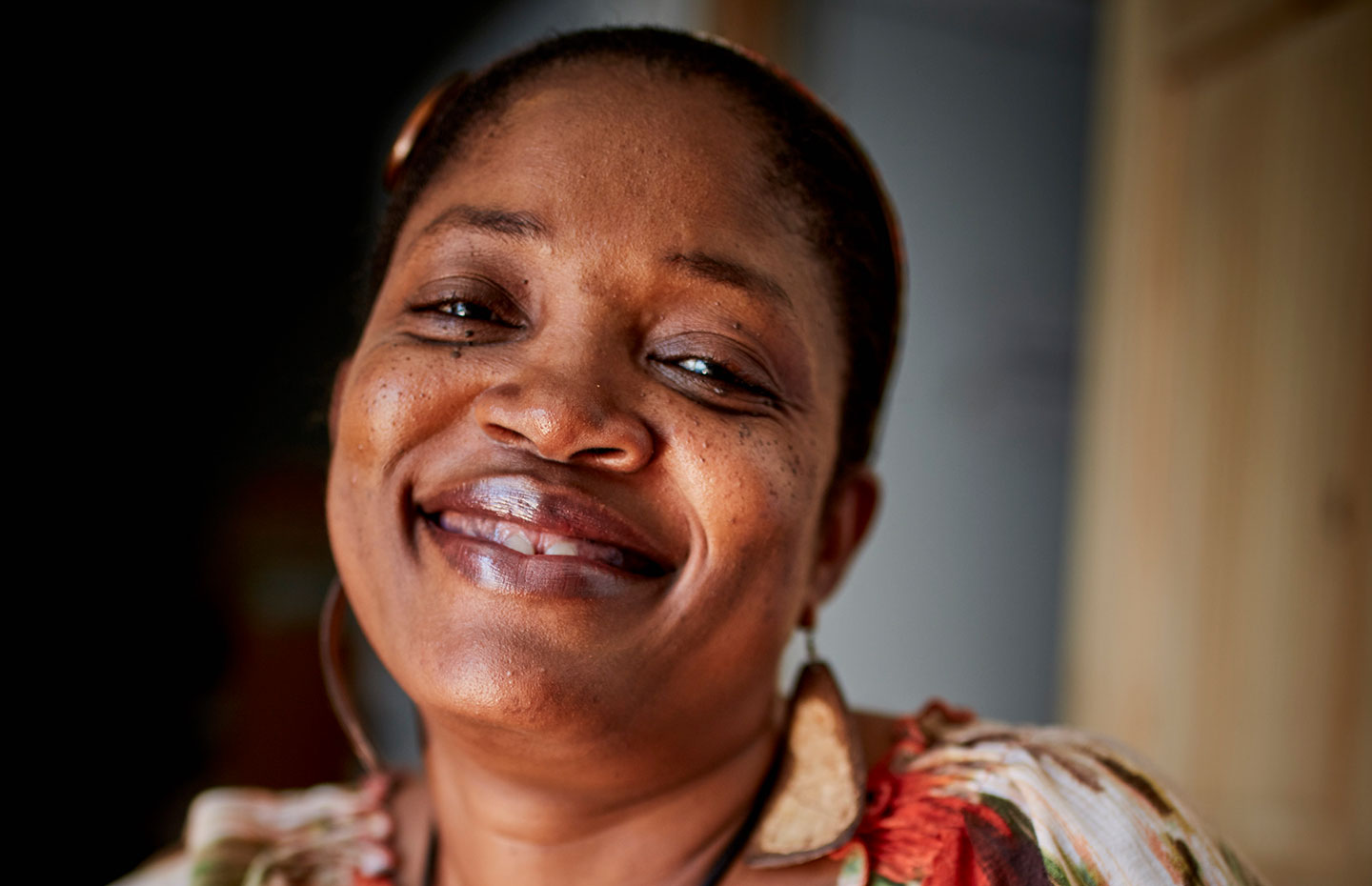
Since June 2017, Dr Paule-Andrée Byron Louis heads Haiti’s Expanded Programme on Immunization. She is a passionate public health expert and brings a wealth of experience through her work in the Health and Population Ministry. She explained to me how Haiti – with a new government and strong support from its partners – needs to “rebuild the foundation of its immunisation programme and reorganise teams to ensure that every child gets the vaccines that they need.”
Dr Paule-Andrée Byron Louis, head of Haiti’s vaccine programme
For 20 years, Gérard Lucien Narcisse has been the warden of the health centre in Kenscoff, a small village located in the mountains above Port-au-Prince. Gérard showed me the new Gavi-supported solar-powered fridges that are currently being installed to keep vaccines cool and effective. He explained how important vaccines are for the future of Haiti, and how he has seen all the children in Kenscoff “growing up, getting married, and having their own kids.”
Gérard Lucien Narcisse, health centre warden
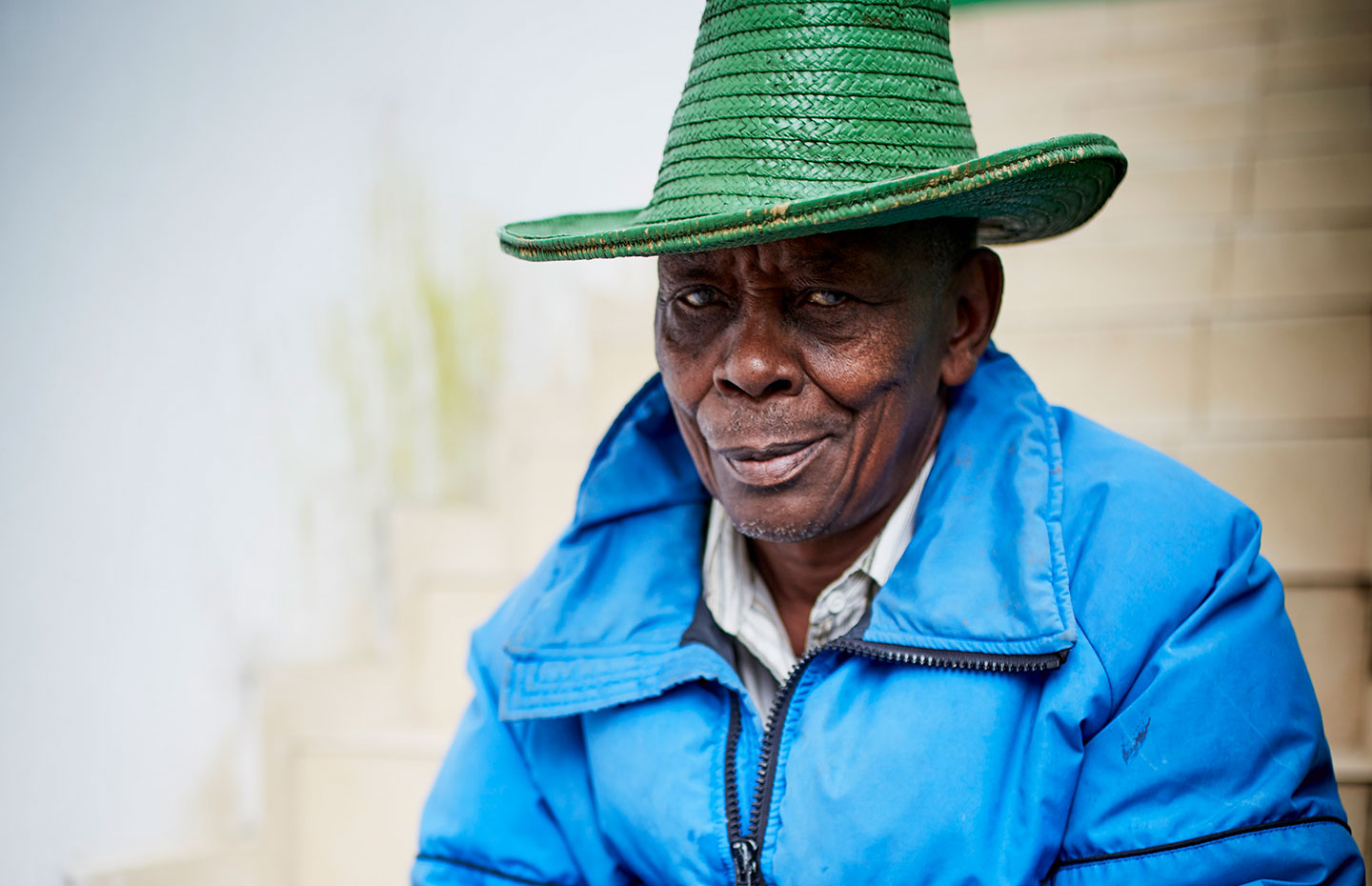
For 20 years, Gérard Lucien Narcisse has been the warden of the health centre in Kenscoff, a small village located in the mountains above Port-au-Prince. Gérard showed me the new Gavi-supported solar-powered fridges that are currently being installed to keep vaccines cool and effective. He explained how important vaccines are for the future of Haiti, and how he has seen all the children in Kenscoff “growing up, getting married, and having their own kids.”
Gérard Lucien Narcisse, health centre warden
30 years ago, Roody Jacques installed propane gas fridges in Haiti’s cold chain. Like his colleagues, he is very excited to install the new, solar-powered fridges. He explained to me how the technology will not only keep vaccines safe, but also cut the costs for fuel and maintenance. “We had a party when Gavi accepted to fund the replacement of all the old fridges. This is what Haiti needs to effectively protect its children with vaccines!”
Roody Jacques, cold chain expert
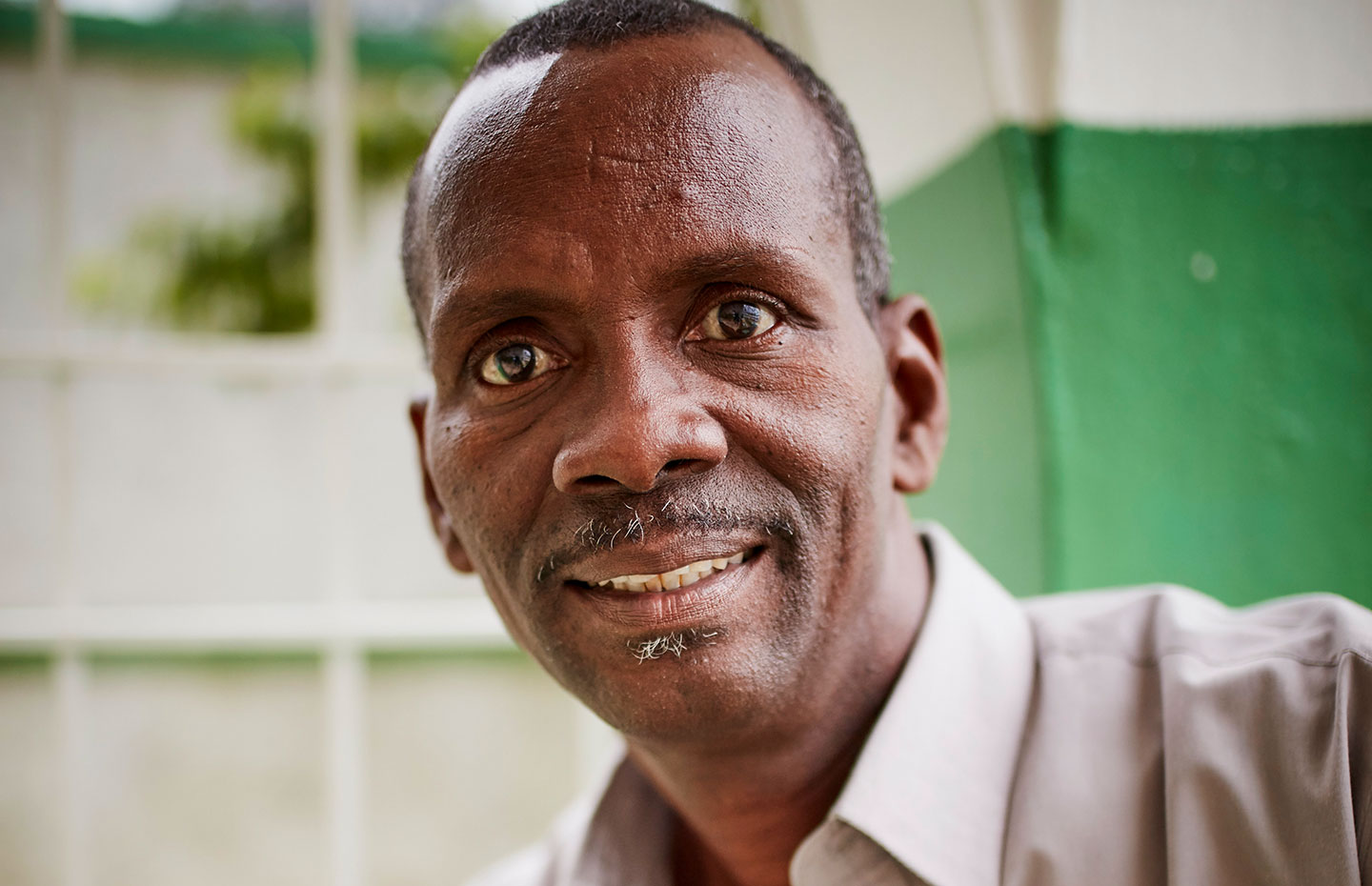
30 years ago, Roody Jacques installed propane gas fridges in Haiti’s cold chain. Like his colleagues, he is very excited to install the new, solar-powered fridges. He explained to me how the technology will not only keep vaccines safe, but also cut the costs for fuel and maintenance. “We had a party when Gavi accepted to fund the replacement of all the old fridges. This is what Haiti needs to effectively protect its children with vaccines!”
Roody Jacques, cold chain expert
When photographing up in Kenscoff, I suddenly heard someone shouting in a megaphone “Vaksin!” It was Masculin Djumen, a “crieuse” who walks around the village, usually on Sundays, announcing information about vaccination sessions that will take place in the following week. Masculin told me that she is studying to become a health worker and vaccinator. Why do you want to do this job? I asked her. “Because vaccines save lives. It’s as simple as that!”
Masculin Djumen, social mobiliser
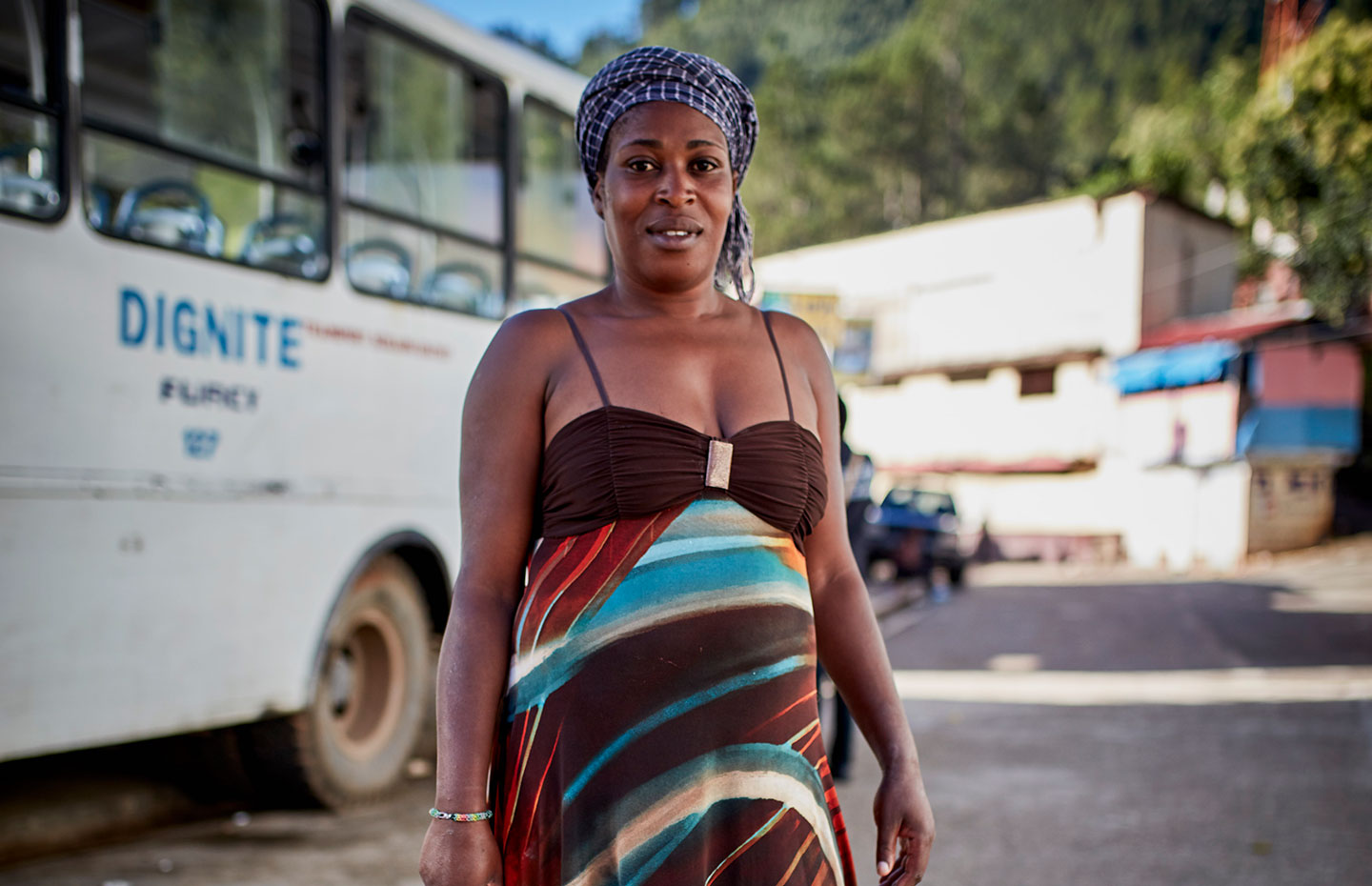
When photographing up in Kenscoff, I suddenly heard someone shouting in a megaphone “Vaksin!” It was Masculin Djumen, a “crieuse” who walks around the village, usually on Sundays, announcing information about vaccination sessions that will take place in the following week. Masculin told me that she is studying to become a health worker and vaccinator. Why do you want to do this job? I asked her. “Because vaccines save lives. It’s as simple as that!”
Masculin Djumen, social mobiliser
Alain Lerebour is the senior technician in charge of installing the 721 Gavi-supported solar-powered fridges that will be deployed in Haiti by 2020. “The devices are geo-localised and transmit by satellite the fridge’s temperatures,” he told me. “This enables us to in real time monitor the temperatures and effectively manage any problems that might occur.” How smart! This year alone, some 200 fridges will be deployed and Alain’s team is working around the clock to make sure that the operation is running smoothly.
Alain Lerebour, senior technician
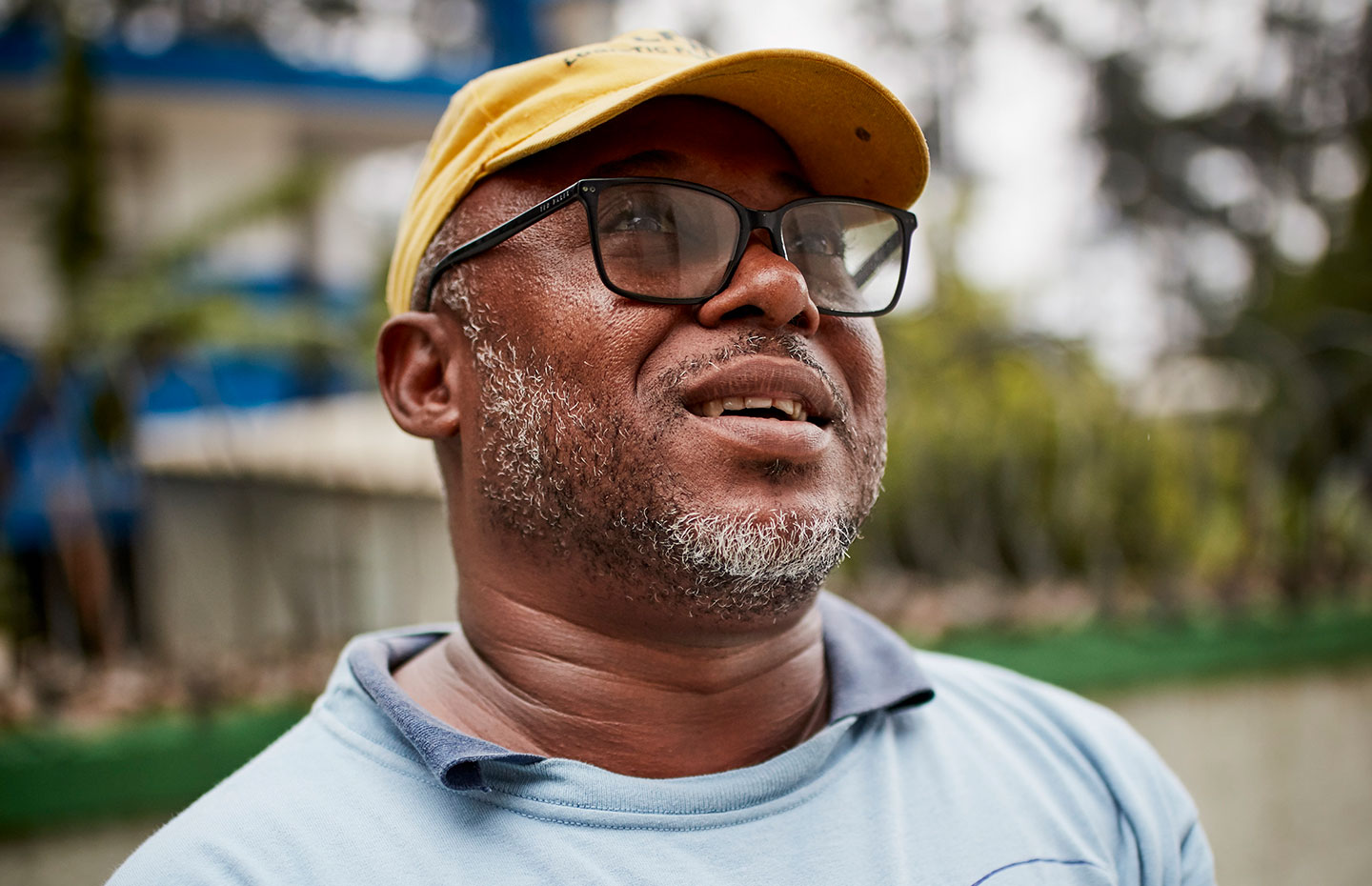
Alain Lerebour is the senior technician in charge of installing the 721 Gavi-supported solar-powered fridges that will be deployed in Haiti by 2020. “The devices are geo-localised and transmit by satellite the fridge’s temperatures,” he told me. “This enables us to in real time monitor the temperatures and effectively manage any problems that might occur.” How smart! This year alone, some 200 fridges will be deployed and Alain’s team is working around the clock to make sure that the operation is running smoothly.
Alain Lerebour, senior technician
I met Adassa and her mother while photographing a vaccination session at the Hôpital Universitaire de la Paix in Port-au-Prince. She had just received her second dose of pentavalent vaccine, which will protect her against five deadly diseases, including diphtheria and tetanus. Adassa didn’t cry or fuss at all when receiving the shot – her mother was so proud of her. I hope she has an amazing life and wish her the very best.
Adassa (and her mother)
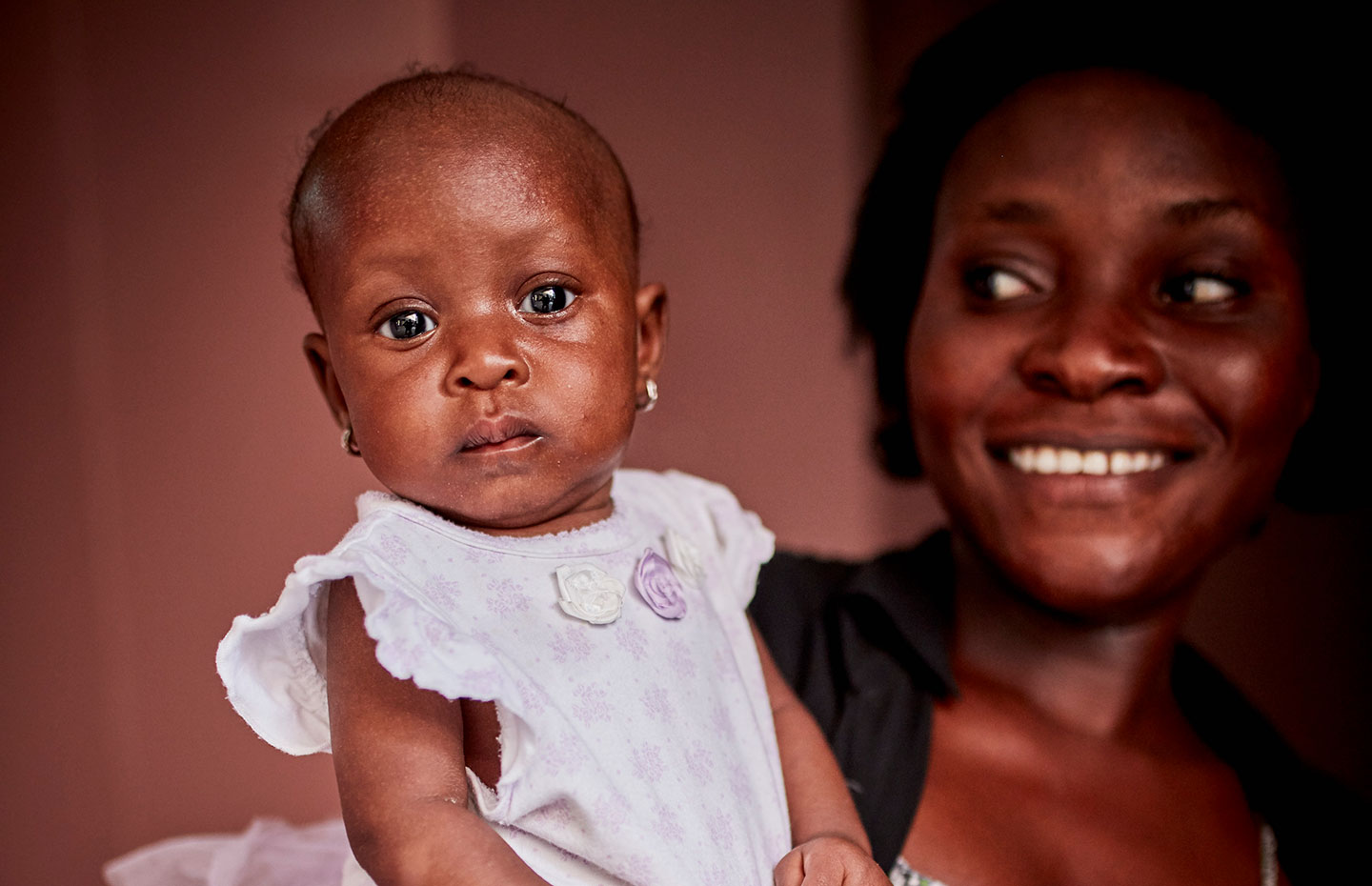
I met Adassa and her mother while photographing a vaccination session at the Hôpital Universitaire de la Paix in Port-au-Prince. She had just received her second dose of pentavalent vaccine, which will protect her against five deadly diseases, including diphtheria and tetanus. Adassa didn’t cry or fuss at all when receiving the shot – her mother was so proud of her. I hope she has an amazing life and wish her the very best.
Adassa (and her mother)
Derline Mentor is a cold chain officer working with UNICEF in Haiti. She first saw solar-powered fridges back in the 90s, and she knew directly that this technology would be game-changing for countries like Haiti, where “the sun is free and community health workers can’t reach babies in remote areas.” Derline is optimistic that the new fridges will help Haiti increase its immunisation coverage, and once all the fridges have been installed “I can retire,” she told me (with a big smile!).
Derline Mentor, UNICEF cold chain officer
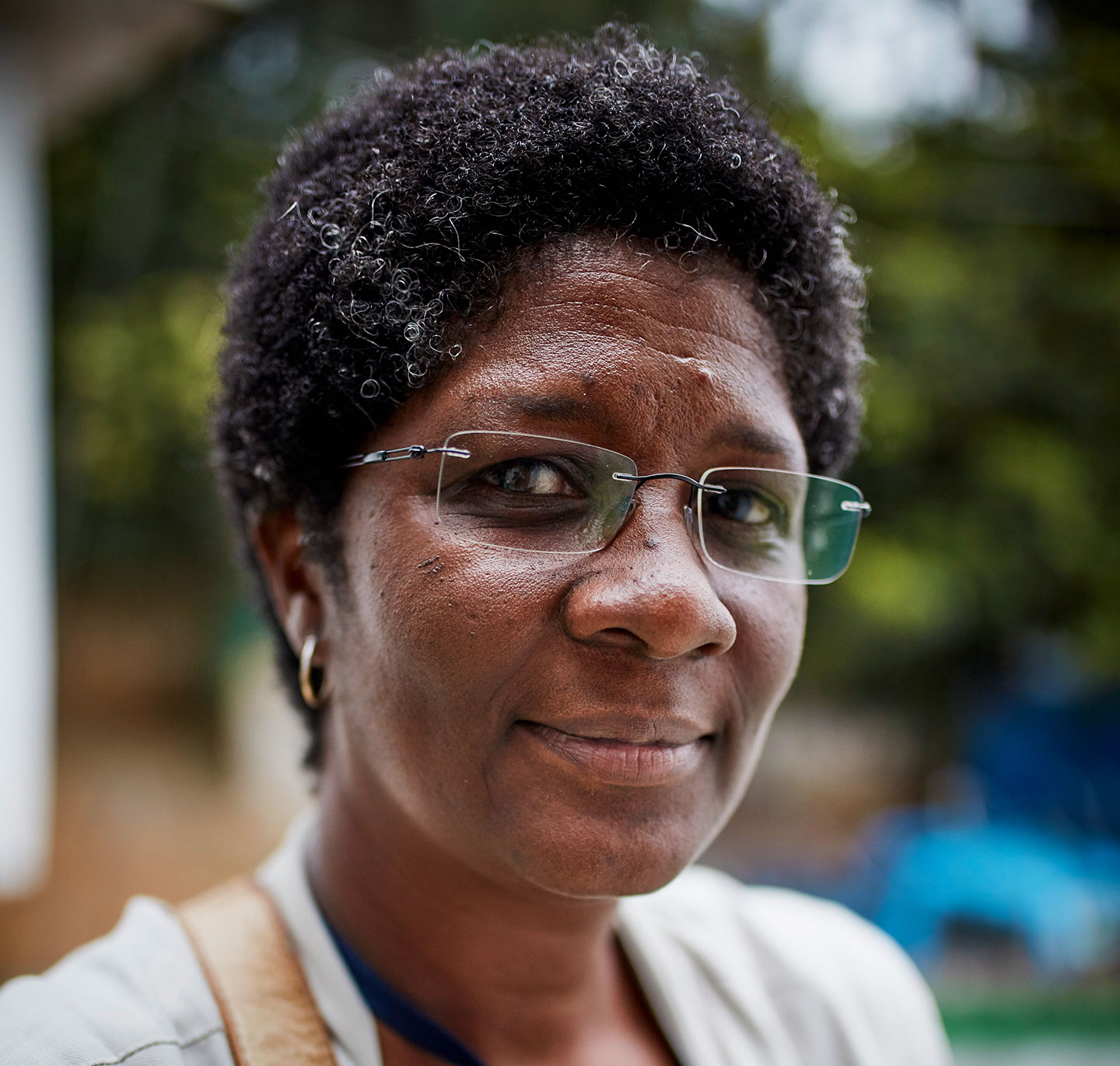
Derline Mentor is a cold chain officer working with UNICEF in Haiti. She first saw solar-powered fridges back in the 90s, and she knew directly that this technology would be game-changing for countries like Haiti, where “the sun is free and community health workers can’t reach babies in remote areas.” Derline is optimistic that the new fridges will help Haiti increase its immunisation coverage, and once all the fridges have been installed “I can retire,” she told me (with a big smile!).
Derline Mentor, UNICEF cold chain officer
Jean-Pierre Botoko is a logistician and cold chain consultant with more than 30 years of experience. Before helping the team in Haiti, he worked with the Expanded Programme on Immunization in the Democratic Republic of the Congo, and participated in the introduction of the MenAfriVac vaccine in Ouagadougou, Burkina Faso. Jean-Pierre is excited about this new adventure, and explained to me how “the new equipment will lower the costs and help reach more children with life-saving vaccines.”
Jean-Pierre Botoko, logistician
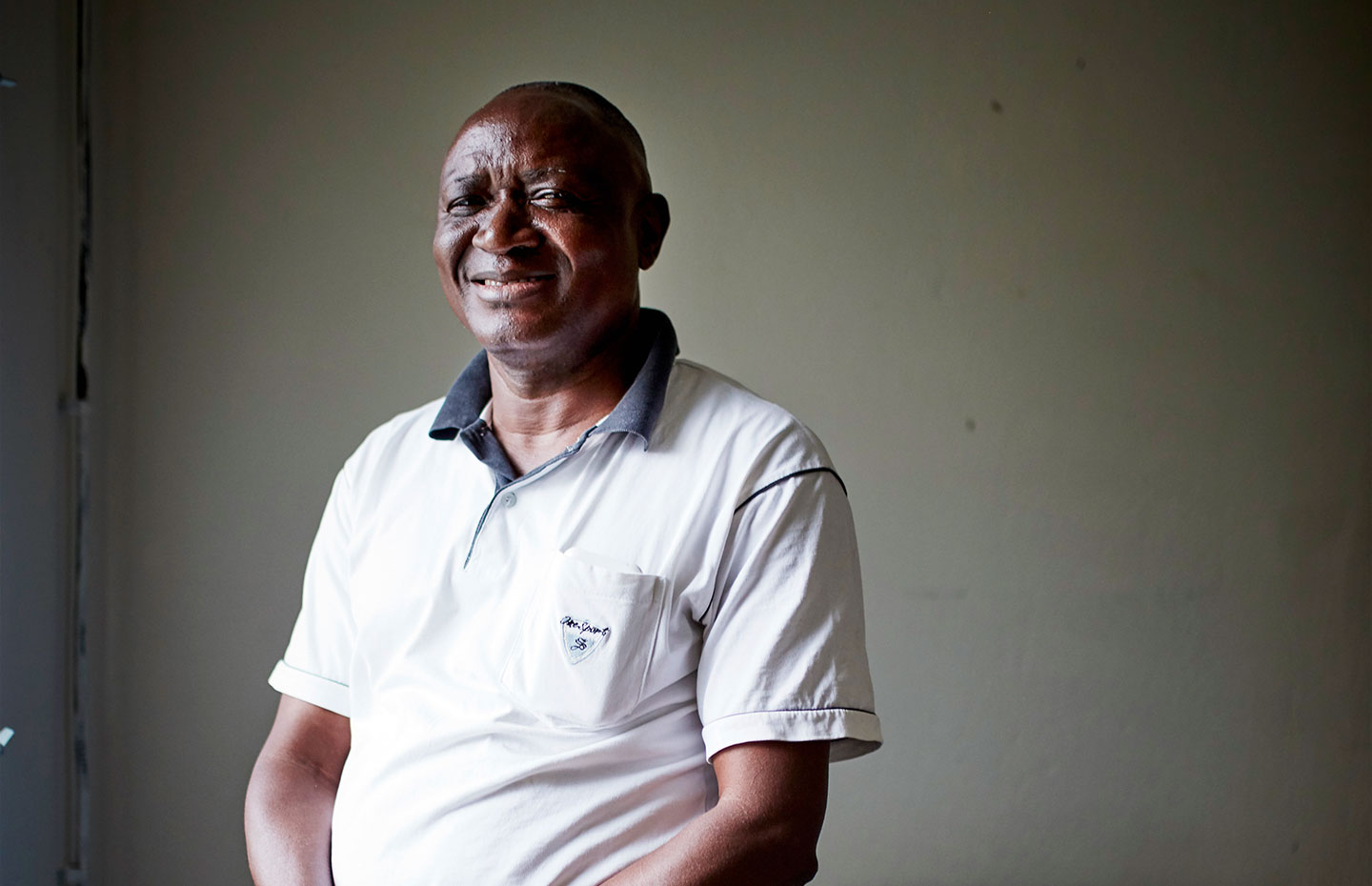
Jean-Pierre Botoko is a logistician and cold chain consultant with more than 30 years of experience. Before helping the team in Haiti, he worked with the Expanded Programme on Immunization in the Democratic Republic of the Congo, and participated in the introduction of the MenAfriVac vaccine in Ouagadougou, Burkina Faso. Jean-Pierre is excited about this new adventure, and explained to me how “the new equipment will lower the costs and help reach more children with life-saving vaccines.”
Jean-Pierre Botoko, logistician
“The busiest day of the week is Monday, with more than 150 children to vaccinate,” Marie Joseph told me. “Sometimes, the parents don’t bring the vaccination cards, which makes it’s really difficult to know which vaccine the children should receive. I wish we could have a better system to record data. The big workbooks we have are not easy to use and we sometimes loose information about the children. That’s why I always tell the parents to bring their vaccination cards.”
Marise Joseph, head of vaccination at Hôpital Universitaire de la Paix, Port-au-Prince
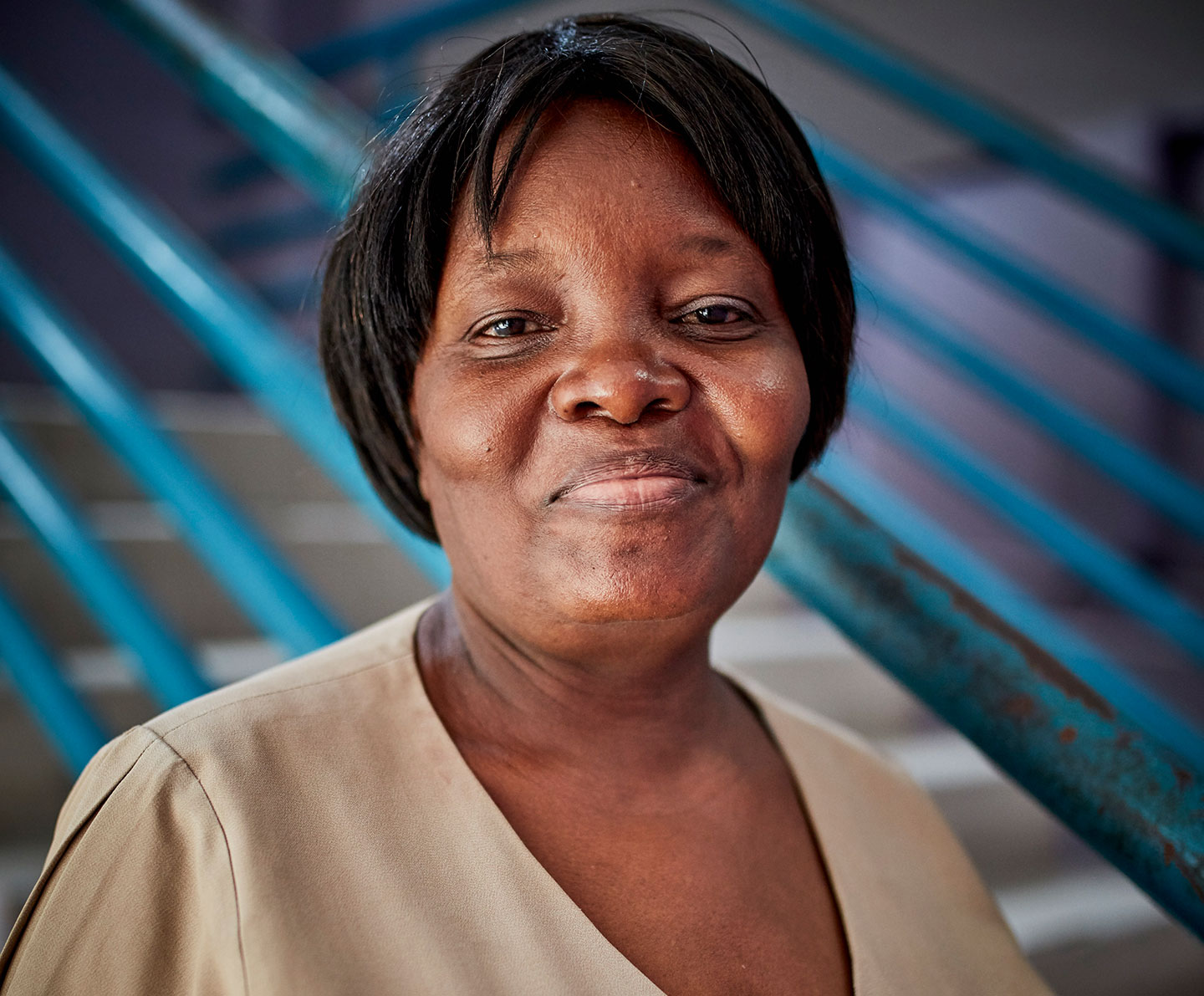
“The busiest day of the week is Monday, with more than 150 children to vaccinate,” Marie Joseph told me. “Sometimes, the parents don’t bring the vaccination cards, which makes it’s really difficult to know which vaccine the children should receive. I wish we could have a better system to record data. The big workbooks we have are not easy to use and we sometimes loose information about the children. That’s why I always tell the parents to bring their vaccination cards.”
Marise Joseph, head of vaccination at Hôpital Universitaire de la Paix, Port-au-Prince





